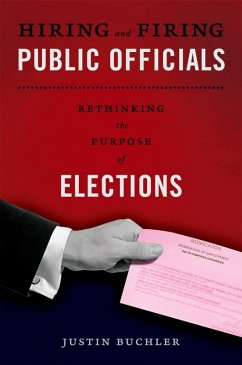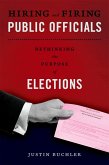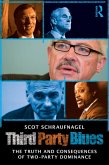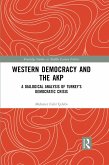Conventional theories of elections hold that an election is analogous to a consumer product market. According to the market paradigm, voters are consumers, candidates are competing firms, and an election is a market in which voters exchange votes for policy by voting for the candidates whose policies they prefer. According to this logic, a healthy democracy requires frequent competitive elections. The market analogy underlies decades of electoral theory, but in
Hiring and Firing Public Officials, Justin Buchler contends that it does not capture the real nature of elections. In fact, our widespread dissatisfaction with the current state of electoral politics derives from a fundamental misunderstanding of what elections are and what purpose they serve. As Justin Buchler shows, an election is a mechanism by which voters hire and fire public officials. It is not a consumer product market--it is a single employment decision. Thus, the health of democracy depends not on regular competitive elections, but on posing a credible threat to fire public officials who do not perform their jobs well. However, the purpose of that threat is to force public officials to act as faithful public servants so that they do not have to be fired. Thus, competitive elections, by most definitions, are indicative of a failure of the democratic system.
Dieser Download kann aus rechtlichen Gründen nur mit Rechnungsadresse in A, B, BG, CY, CZ, D, DK, EW, E, FIN, F, GR, HR, H, IRL, I, LT, L, LR, M, NL, PL, P, R, S, SLO, SK ausgeliefert werden.









